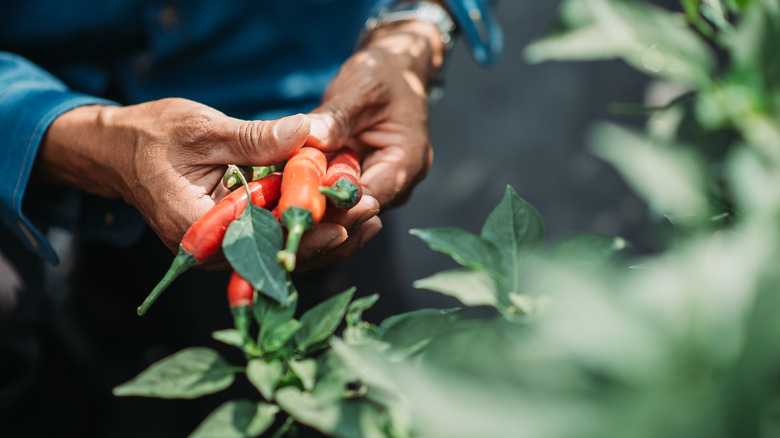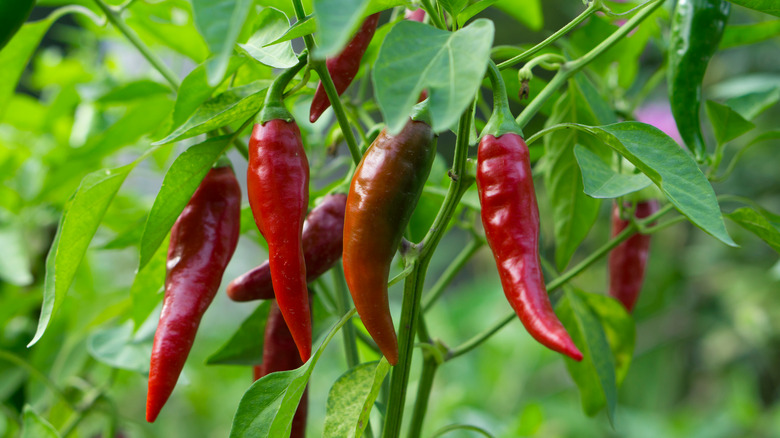Get A Head Start On Next Year's Peppers With This Gardening Hack
Overwintering is a technique gardeners use to keep pepper plants alive during the harsh winter months, ensuring they're ready to produce in the next growing season. This method is a boon for those residing in colder climates, preventing the hard choice between composting their pepper plants post-fall or trying to sustain them till spring. There are a few steps needed to overwinter your pepper plants successfully. Begin by taking the plant out of its current pot. Wash the roots carefully using a hose and nozzle. Afterward, prepare new soil in a larger container. Next, trim the plant down, preserving a couple of primary "Y" branches. Ensure 1-2 inches remain at the upper segment of these "Y"s. Then, drench the plant thoroughly and allow it to drain before re-potting.
Once these steps are complete, relocate the plant to a cool, well-lit room that is between 55 to 65 degrees Fahrenheit. If there's limited natural light, think about using a grow light. Be vigilant about potential pests or diseases and only water when the soil seems dry upon touch. Adopting this method saves your plants and offers a head start in the next growing season.
How to overwinter successfully
Overwintering encourages pepper plants to enter a dormant state during winter, preserving energy for the upcoming growing season. When pruned and housed in a cool environment, the plant ceases pepper production and concentrates on energy conservation. When overwintering peppers, keep these tips in mind. Always opt for fresh, bagged potting soil. Ideally, select soil without any additives or fertilizers to provide the best environment for your plant. Also, regularly inspect the plant for signs of diseases or pests. If identified, treat promptly using neem oil or insecticidal soap.
In addition to watching for pests, monitor watering and only water if the soil feels dry. Avoid overwatering, which can cause root rot, jeopardizing the plant's health. Keep your pepper plants in a draft-free room to ensure successful overwintering. Cold or drafty conditions can adversely affect the plant. Overwintering provides a lifeline to your pepper plants during the colder months. Adhering to the above guidelines guarantees that your plants remain robust and primed for a fruitful growing season.

